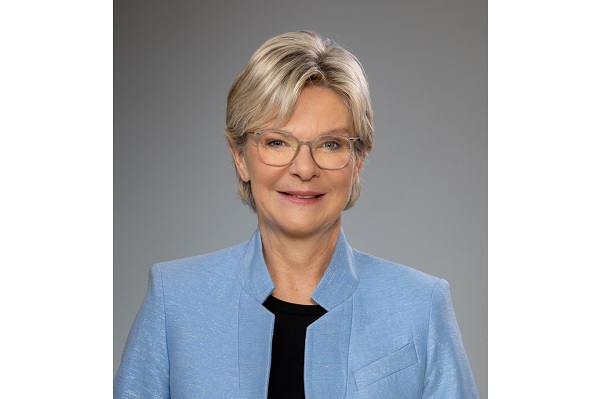 Minister Martine Hansen;
Credit: © SIP / Claude Piscitelli
Minister Martine Hansen;
Credit: © SIP / Claude Piscitelli
Following the legislative elections of 8 October 2023 and several weeks of coalition talks, the new CSV-DP coalition government of Luxembourg was sworn in on 17 November 2023.
Chronicle.lu reached out to the new members of the Luxembourg government to learn about their priorities one month on, as well as the challenges and opportunities facing their particular sector(s) - and how they will spend the end-of-year holiday period.
Next up was Martine Hansen, Luxembourg's Minister of Agriculture, Food and Viticulture.
Chronicle.lu: The new government was sworn in on 17 November 2023. One month on, what are your top three / main priorities as Luxembourg’s Minister of Agriculture, Food and Viticulture?
Minister Martine Hansen: 1. Dialogue with the agricultural sector and all key stakeholders; 2. Support sustainable agriculture and food production in Luxembourg; 3. Foster innovation in agriculture.
Chronicle.lu: How does this ministerial role compare to / differ from your previous position(s)? In what way(s) do you feel your previous position(s) and experience can contribute to / be of use in your new government role?
Minister Martine Hansen: As a former Member of Parliament and Co-President of the CSV Parliamentary Group, I have been following issues in agriculture and viticulture very closely over the past years, so I am on top of current challenges, and ready to tackle them! I'm an agricultural engineer and former Director of the Lycée Technique Agricole, and my technical expertise and knowledge of the sector are very useful when meeting key stakeholders.
Chronicle.lu: What do you see as the biggest challenges currently facing Luxembourg's agricultural and viticultural sectors and how does your ministry plan to overcome / address them, particularly in the coming months? How will you measure the success of these initiatives (e.g. metrics)?
Minister Martine Hansen: 1. Meet environmental goals and adapt to climate change; 2. Maintain economic viability of our farms and agricultural businesses in Luxembourg; 3. Empower the next generation of young and new farmers and ensure generational renewal.
Our new agricultural law enables us to support the farming sector through a very large array of measures, ranging from support for environment-friendly farming practices to investment aids for animal welfare or schemes to help young farmers take over farming businesses.
The basis of this legislation and of these measures is our national strategic plan that serves as roadmap in order to implement the Common Agricultural Policy 2023-2027 (EU) in Luxembourg. This plan is underlying a very detailed monitoring system that aims to evaluate the effectiveness of our agricultural policies. In two years, we intend to organise a comprehensive mid-term review of the whole package, in close collaboration with the farming sector, in order to assess what worked out well and what was less successful, and adapt accordingly.
Chronicle.lu: What are the biggest opportunities for Luxembourg's agricultural and viticultural sectors, and how will your ministry leverage these opportunities, particularly in the coming months?
Minister Martine Hansen: I see a major opportunity in maintaining the sustainability of our agricultural sector and products in Luxembourg. The backbone of Luxembourg's agriculture are family-owned farms, which produce quality products on a human scale, in a sustainable and transparent way. We do not have industrial farming in Luxembourg and distances between farmers and consumers are short. One of Luxembourg's strengths is that our farming sector and locally produced food benefit from a very positive image among citizens, who appreciate the quality, taste and food safety of Luxembourgish agricultural products, as confirmed by recent consumer surveys. My ministry will continue to strengthen trust between all our farmers, conventional and organic, and consumers and keep on proactively promoting regional and seasonal products.
Chronicle.lu: Please explain the significance of the shift from "rural development" (in the ministry's name in the previous government) to "food" in your ministry's name. Why is "food" in particular important to this government / your ministry?
Minister Martine Hansen: Rural development remains a major priority, but we simply did not want the name of the ministry to become too long! Developing a national food policy is very important to the government, as food production remains the main objective of agriculture.
Chronicle.lu: In a meeting last month with agricultural representatives, you announced the "institutionalisation" of the "Landwirtschaftsdësch" (consultation meeting) - why is this important for the sector, in your opinion?
Minister Martine Hansen: We need ongoing dialogue and regular exchanges with the agricultural sector, so that we can discuss practical issues as soon as they arise, find solutions together and develop a common vision for the future of our agriculture. In my mandate, I intend to be very close to people on the ground, visit farmers and producers, and keep dialogue open and fluid!
Chronicle.lu: Moving away from politics, what are some traditions or activities (if any) you (will) enjoy during the end-of-year (Christmas and New Year) holiday period? Any New Year's plans or resolutions you could share with our readers - or another message as 2023 draws to a close?
Minister Martine Hansen: I will spend Christmas and the New Year period [at] home, with my family and look forward to share time and good food. I have no special News Year's resolutions besides staying fit and enjoying outdoor running, especially in the beautiful northern Éislek region where I come from.
As a final message for your readers, I would like to pass on my best wishes for a joyous Christmas and a happy new year to all! And when shopping for food these days, let's not forget about our local producers! Our website regionalsaisonal.lu aims to inspire and offers plenty of useful information!








